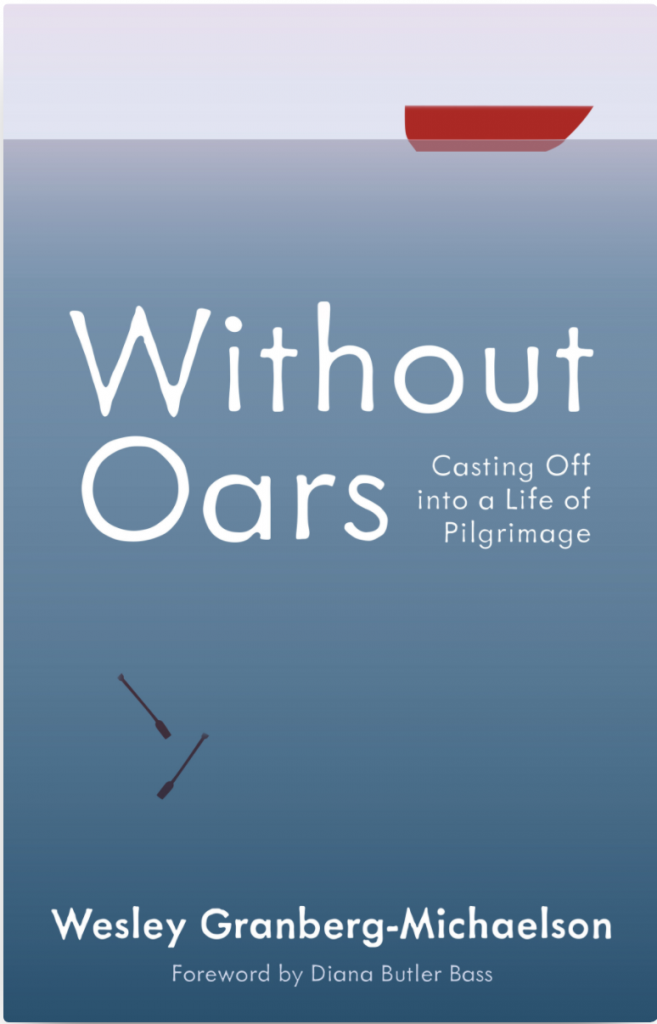
A long-time member of our International Committee, Wesley Granberg-Michaelson, recently published a new book, Without Oars. In it, he blends history, storytelling, biblical insights, personal reflections, and spiritual formation in an inviting call to discover pilgrimage as a way of life. Here, fellow GCF committee member Ganoune Diop offers his reflections on reading Without Oars. To learn more about the book, visit www.wesgm.com/without-oars.
In a Boat Without Oars:
The blessing of being disoriented, and finally letting God be God
A review by Ganoune Diop
Secretary General International Religious Liberty Association,
Director of Public Affairs General Conference of SDA church World Headquarters,
Member of the Global Christian Forum International Committee
Every once in a while a person reconfigures our perception of reality and relationships, unveils the tyranny of human expectations and the illusion of control over life’s mysteries. God who alone can hold and master the whole of reality chose to create space for us to be. God let go of God’s privileges and immunities to embrace the human condition and to deliver it from the bondage of the self.
In his new book Without Oars, Wes Granberg-Michaelson takes us on a journey of deconstructing and debunking. This is not only therapeutic but also an endeavor which indicates a path to deliverance from our addictions to idols that compete for our attention and take our focus away from the face of the God of love.
A warning and a promise: read to your own peril, because in the end you will face a pressing choice: will you, or won’t you, let God be God? Connected to this choice, you will invite yourself to choose to be human and humane. Isn’t this the treasure that eludes our quests and restlessness? The life defining choice that turns fake hopes into disenchantments until we let go and allow God to become the companion and the goal of our journey. Re-enchantment is then made possible.
The author of this book is not prescribing techniques and methods of spirituality for sale.
Even for those like myself for whom pilgrimage is not part of our tradition, or contemplating prayers our practice, the imperatives of letting God be the sovereign Lord and Savior are compelling. Even when the author mentions beliefs which are not shared by all Christian traditions, he never intimates or imposes them as evidence but speaks with openness, leaving it to the reader’s discretion. The author always takes us deeper, to what really matters: the invisible but active presence of God, the creator, who must be trusted. The journey in fact leads to everlasting fellowship with the God who is love (1 John 4:8).
Thank you, dear Wes, for reminding us of the creator of the ocean on which we each find our boat. What is a storm to the one who masters the wind and who promised: “I am with you always”?
“If anyone wants to be my follower, let him deny himself or herself, take up his or her cross, and follow me.” Jesus indeed calls us to a life of pilgrimage. Moreover, we are at home in Jesus as God’s Spirit is at home in us.
Thank you, Wes, for being one of God’s gifts to us. How blessed we are to read this significant book which beckons us to look at the face of the Triune God smiling at us, welcoming us to everlasting fellowship in love. God is the One who guides us, even as we search for God. So, indeed, we have no need for oars.
__
In Without Oars, Wesley Granberg-Michaelson blends history, storytelling, biblical insights, personal reflections, and spiritual formation in an inviting call to discover pilgrimage as a way of life. This book offers a unique perspective on the faith journey as an embodied practice of heading into the unknown and unknowable–with all the excitement, risk, and rewards that come with letting go.
